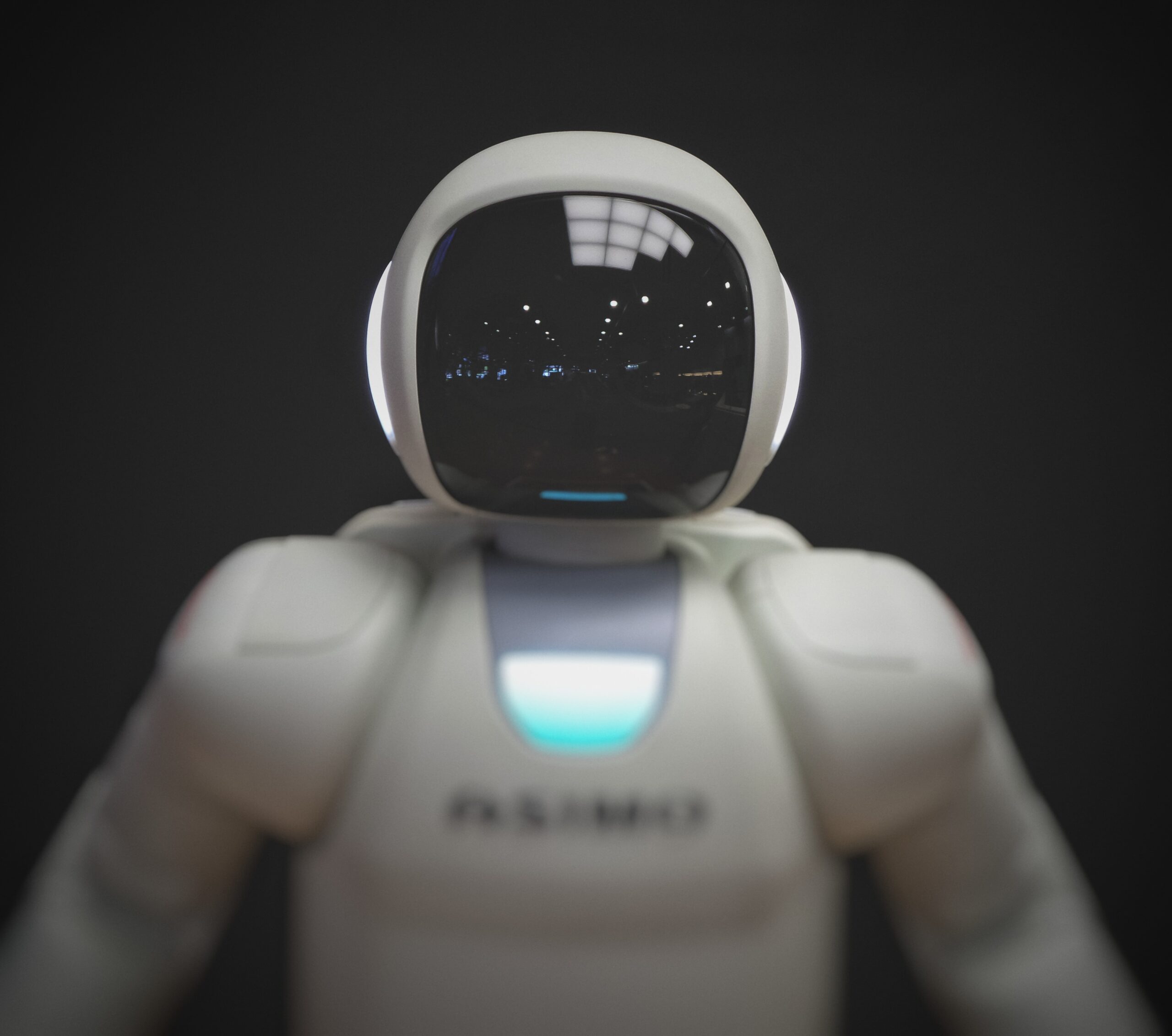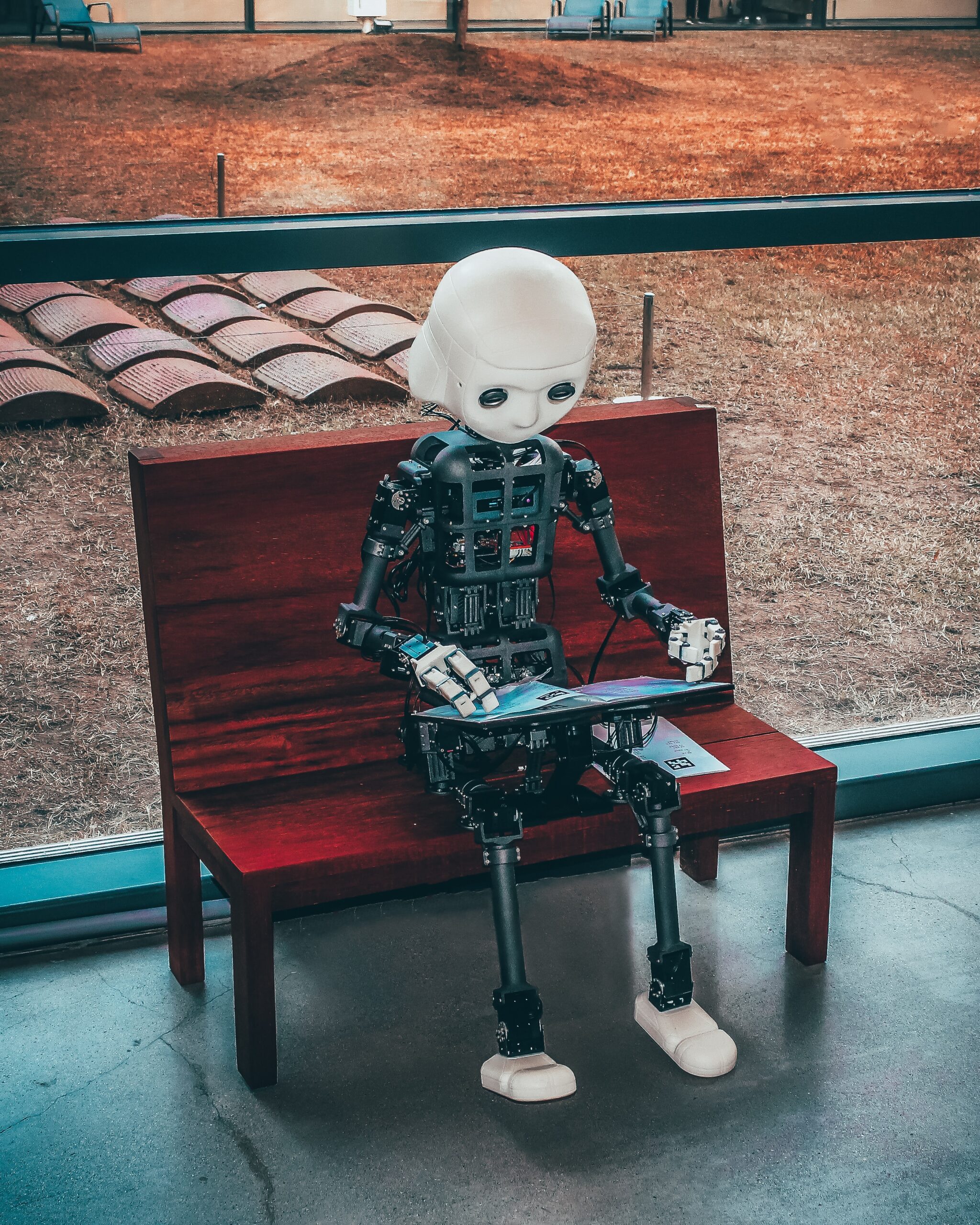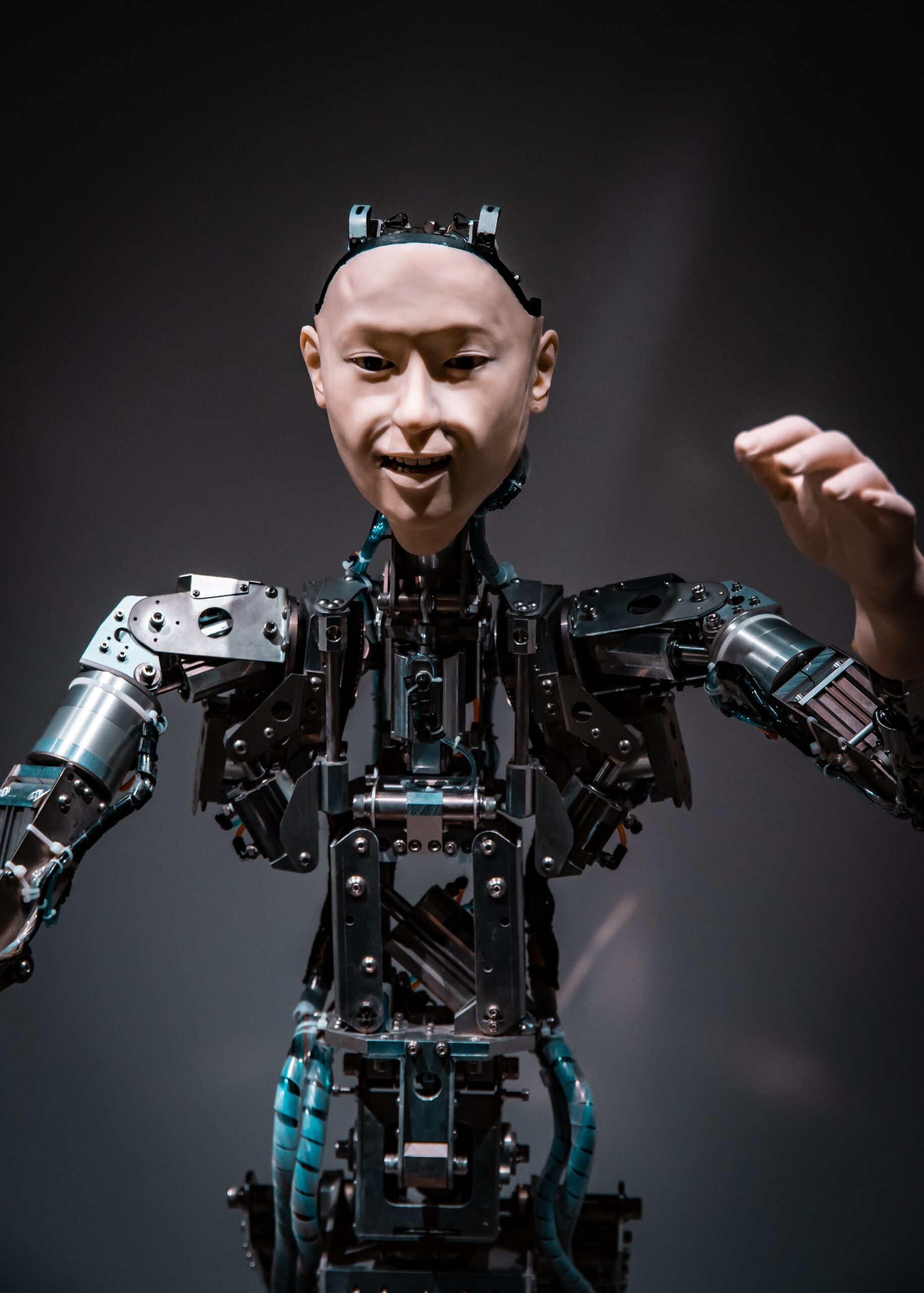Imagine a world where your smartphone understands your needs even before you do, where your car drives itself, and where household tasks are effortlessly taken care of by intelligent machines. This is the reality of everyday life in today’s technologically advanced society, thanks to the widespread integration of Artificial Intelligence (AI). From voice assistants like Siri and Alexa to recommendation algorithms on streaming platforms, AI has become an indispensable part of our lives. In this article, we will explore some of the most popular use cases of AI in daily life and how it continues to shape our experiences in remarkable ways. So buckle up and prepare to be amazed by the extraordinary role AI plays in our everyday lives!

Healthcare
In the field of healthcare, AI is proving to be an invaluable tool. Diagnosis and treatment have become more accurate and efficient with the help of artificial intelligence. AI algorithms can quickly analyze medical data, such as lab results and medical images, and provide doctors with more precise diagnoses. This is particularly useful in complex medical cases where human expertise alone may not be sufficient. AI-powered tools can also assist in identifying patterns and predicting outcomes, helping doctors make better-informed decisions about treatment options.
Remote monitoring and telemedicine have become increasingly popular in recent years, and AI plays a crucial role in enabling these services. Through the use of wearable devices and sensors, AI can continuously monitor patients’ health parameters and alert healthcare professionals in case of any abnormalities. This real-time monitoring allows for early detection of potential health issues and prompt intervention. Moreover, AI-powered telemedicine solutions facilitate remote consultations, making healthcare more accessible to individuals who are unable to visit a healthcare facility physically.
Drug discovery and development have historically been lengthy and expensive processes. However, AI is revolutionizing these areas by significantly speeding up the process and reducing costs. Machine learning algorithms can analyze enormous amounts of data to identify potential drug candidates, predict their effectiveness, and even simulate their behavior within the human body. This helps pharmaceutical companies focus their efforts on the most promising drug candidates, accelerating the overall drug discovery process and ultimately bringing new treatments to patients faster.
Education
In the field of education, AI is transforming the way we learn and teach. Personalized learning is now possible through the use of AI algorithms that adapt to an individual student’s needs and pace. These algorithms can analyze a student’s learning patterns and preferences to create customized learning experiences, providing the right content and resources at the right time. This not only enhances the learning process but also promotes student engagement and motivation.
Intelligent tutoring systems leverage AI to provide students with personalized guidance and support. These systems can assess a student’s knowledge and skills, identify areas of improvement, and deliver tailored feedback and assistance. By adapting to the student’s learning style and pace, intelligent tutoring systems can maximize learning outcomes and help students reach their full potential.
Automated grading is another area where AI is making a significant impact. AI-powered algorithms can evaluate student assignments, tests, and exams, providing immediate feedback on their performance. This not only saves valuable time for teachers but also allows students to receive timely feedback that can help them improve their understanding and performance. Automated grading also ensures consistency and fairness in the evaluation process.
Transportation
In the transportation sector, AI is revolutionizing the way we travel. Autonomous vehicles, also known as self-driving cars, are a prime example of AI technology in action. These vehicles use a combination of sensors and AI algorithms to navigate roads, detect objects, and make real-time driving decisions. With the potential to reduce human error, autonomous vehicles hold the promise of safer and more efficient transportation systems in the future.
Smart traffic management is another area where AI is making a significant impact. AI algorithms can analyze vast amounts of traffic data in real-time, enabling traffic management systems to optimize traffic flow and minimize congestion. These systems can adjust traffic signals and control the flow of vehicles based on current conditions, reducing travel times and improving overall road efficiency.
Predictive maintenance is becoming increasingly important in the transportation industry, and AI plays a crucial role in this area. By analyzing sensor data from vehicles and other transportation infrastructure, AI algorithms can detect anomalies and predict potential failures before they occur. This allows for proactive maintenance, minimizing disruptions and ensuring the reliability and safety of transportation systems.
Entertainment
AI is also revolutionizing the entertainment industry by enhancing the way we discover and consume content. Recommendation systems powered by AI algorithms are becoming ubiquitous, helping users discover movies, music, books, and other forms of entertainment that align with their preferences. These systems analyze user data, such as past choices and preferences, to provide personalized recommendations tailored to individual interests.
Virtual assistants have become a common feature in many homes, and AI is the driving force behind their functionality. These AI-powered assistants, such as Amazon’s Alexa or Apple’s Siri, can understand and respond to voice commands, perform tasks, and provide information on various topics. Whether it’s playing music, setting reminders, or answering questions, virtual assistants make everyday tasks more convenient and enjoyable.
AI-generated content is gaining traction in the entertainment industry. From creating music and art to generating news articles and stories, AI algorithms are capable of producing content that mimics human creativity and style. While still evolving, AI-generated content has the potential to revolutionize the creative process and offer new and unique experiences for audiences.

Communication
In the realm of communication, AI technologies are driving advancements in speech recognition and translation. Speech recognition algorithms can transcribe spoken language into written text, enabling more efficient and accurate communication. This technology has applications in various fields, from transcription services to voice-enabled assistants.
Language processing and chatbots are also becoming increasingly sophisticated, thanks to AI. These AI-powered systems can understand and respond to human language, allowing for more natural and interactive communication. Chatbots, in particular, are used in customer service interactions, providing support and assistance to users in a conversational manner.
Smart reply is another communication tool enhanced by AI. This feature, commonly found in messaging and email platforms, suggests quick and relevant responses to incoming messages, saving time and effort for the user. By analyzing the content of the message and understanding the context, AI algorithms can generate appropriate responses that align with the conversation.
Finance
In the financial sector, AI is transforming various aspects of operations and customer service. Fraud detection and prevention have greatly benefited from AI technology. Machine learning algorithms can analyze vast amounts of financial data to identify suspicious patterns and anomalies indicative of fraudulent activity. This helps financial institutions detect and prevent fraud in real-time, protecting both customers and businesses.
Algorithmic trading, also known as automated trading, relies heavily on AI technologies. AI algorithms can analyze market data and make trading decisions in real-time, maximizing profit potential and reducing human error. This is particularly relevant in high-frequency trading, where decisions need to be made within microseconds. Algorithmic trading also improves market efficiency by enabling faster and more accurate trades.
Customer service has seen significant improvements with the introduction of AI-powered solutions. Chatbots, for example, can provide 24/7 customer support, promptly addressing customer inquiries and issues. These intelligent virtual assistants can handle repetitive and straightforward tasks, freeing up human agents to focus on more complex and specialized cases. AI-powered customer service systems can also provide personalized recommendations and tailored experiences to customers, enhancing overall satisfaction.

Smart Homes and IoT
AI is playing a pivotal role in making our homes smarter and more energy-efficient. Home automation systems leverage AI to control various aspects of household operations, such as lighting, heating, and security. With the help of AI algorithms, these systems can learn from user behavior, adapt to preferences, and automatically adjust settings to optimize comfort and energy efficiency.
Voice-activated assistants have gained popularity in smart homes, providing a convenient and hands-free way of interacting with various devices and services. AI-powered assistants, such as Google Home or Apple HomePod, can perform tasks based on voice commands, such as playing music, controlling smart devices, or providing information. These assistants continue to evolve, offering more advanced features and integration with a wide range of services.
Smart energy management is becoming increasingly important in the era of sustainability. AI algorithms can analyze energy consumption patterns and optimize energy usage in real-time. By adjusting settings and suggesting energy-saving measures, smart energy management systems can help homeowners reduce their carbon footprint and save on energy costs.
E-commerce
AI is revolutionizing the world of e-commerce by enhancing the online shopping experience and improving business operations. Personalized product recommendations have become a staple in many e-commerce platforms, thanks to AI algorithms. These algorithms analyze user data, such as browsing history and purchase behavior, to offer relevant and personalized product suggestions. This not only increases customer satisfaction but also drives sales and customer loyalty.
Virtual shopping assistants are another innovation powered by AI. These intelligent chatbots or virtual agents assist shoppers in finding the right products, answering questions, and providing personalized recommendations. Virtual shopping assistants can simulate the experience of interacting with a knowledgeable salesperson, offering a more engaging and convenient shopping experience.
Dynamic pricing is an application of AI algorithms that adjust prices of products or services based on real-time market conditions, demand, and competitor pricing. This allows businesses to optimize their pricing strategies to maximize revenue and profit. Dynamic pricing also benefits consumers, as they can benefit from lower prices during off-peak periods or take advantage of promotional offers.

Manufacturing
AI is revolutionizing the manufacturing industry by improving efficiency, quality control, and automation. Quality control processes have benefited significantly from AI technology. AI-powered systems can analyze sensor data and images to detect defects and anomalies in real-time. By automating quality control inspections, manufacturers can identify and address issues swiftly, preventing defective products from reaching the market.
Predictive maintenance is crucial for ensuring the reliability and efficiency of manufacturing operations. By analyzing sensor data and historical performance data, AI algorithms can predict potential equipment failures, allowing for proactive maintenance. This reduces downtime, improves productivity, and saves costs associated with reactive maintenance.
Robotic process automation (RPA) is another area where AI is making an impact in manufacturing. RPA uses AI algorithms to automate repetitive and rule-based tasks, freeing up human workers to focus on more complex and value-added activities. From assembly line operations to inventory management, RPA improves efficiency and streamlines manufacturing processes.
Security
AI technologies are playing a critical role in bolstering security measures in various domains. Facial recognition and surveillance systems have become more advanced with the help of AI algorithms. These systems can accurately identify individuals by analyzing facial features captured by cameras. This has applications in law enforcement, access control systems, and enhancing security in public spaces.
Cybersecurity is a growing concern in the digital age, and AI is proving to be a valuable asset in combating cyber threats. AI algorithms can analyze vast amounts of data to detect patterns indicative of cyber attacks or suspicious activities. By continuously monitoring network traffic and user behavior, AI-powered cybersecurity systems can identify and respond to threats in real-time, mitigating potential damage.
Fraud prevention is another area where AI technologies are making a difference. By analyzing patterns and anomalies in financial transactions, AI algorithms can identify fraudulent activity and trigger alerts. This helps financial institutions and businesses protect themselves and their customers from fraud, preventing financial losses and reputational damage.
In conclusion, AI has become an integral part of everyday life, revolutionizing various industries and enhancing our experiences. From healthcare and education to transportation and entertainment, AI technologies have made significant advancements in diagnosis and treatment, personalized learning, autonomous vehicles, recommendation systems, speech recognition, fraud detection, and much more. With its potential for innovation and transformation, AI continues to shape the world we live in, making it smarter, safer, and more efficient.







Leave a Reply